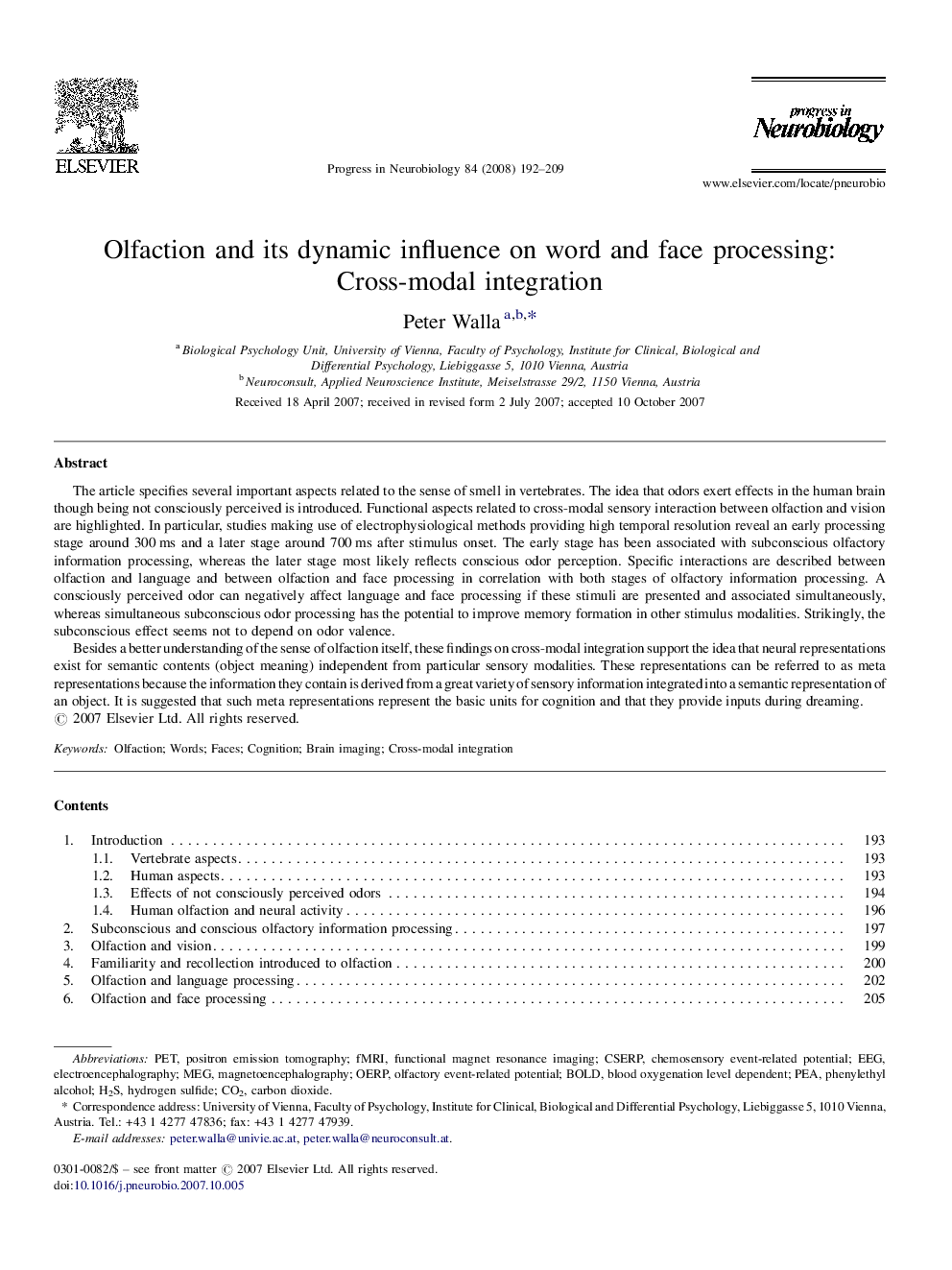| Article ID | Journal | Published Year | Pages | File Type |
|---|---|---|---|---|
| 4353805 | Progress in Neurobiology | 2008 | 18 Pages |
The article specifies several important aspects related to the sense of smell in vertebrates. The idea that odors exert effects in the human brain though being not consciously perceived is introduced. Functional aspects related to cross-modal sensory interaction between olfaction and vision are highlighted. In particular, studies making use of electrophysiological methods providing high temporal resolution reveal an early processing stage around 300 ms and a later stage around 700 ms after stimulus onset. The early stage has been associated with subconscious olfactory information processing, whereas the later stage most likely reflects conscious odor perception. Specific interactions are described between olfaction and language and between olfaction and face processing in correlation with both stages of olfactory information processing. A consciously perceived odor can negatively affect language and face processing if these stimuli are presented and associated simultaneously, whereas simultaneous subconscious odor processing has the potential to improve memory formation in other stimulus modalities. Strikingly, the subconscious effect seems not to depend on odor valence.Besides a better understanding of the sense of olfaction itself, these findings on cross-modal integration support the idea that neural representations exist for semantic contents (object meaning) independent from particular sensory modalities. These representations can be referred to as meta representations because the information they contain is derived from a great variety of sensory information integrated into a semantic representation of an object. It is suggested that such meta representations represent the basic units for cognition and that they provide inputs during dreaming.
